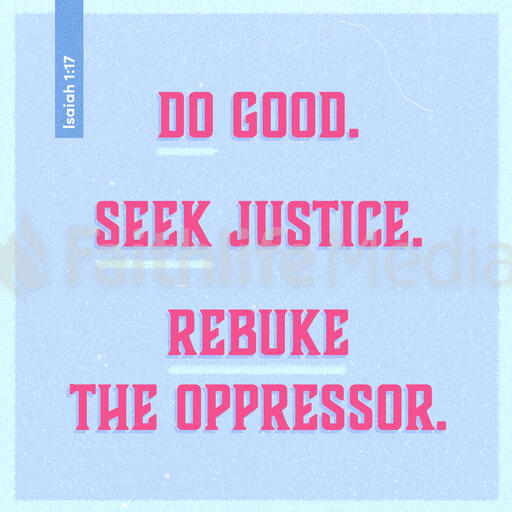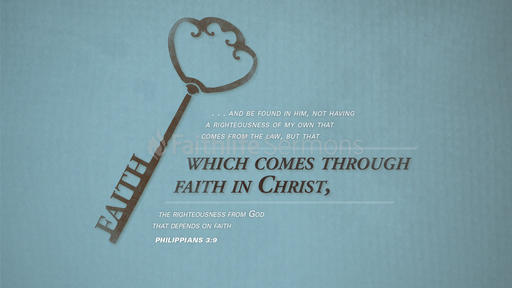Ecclesiastes: The Problem
The Golden Thread • Sermon • Submitted • Presented
0 ratings
· 3 viewsThe preacher outlines the problem in this world. That problem is
Notes
Transcript
Introduction
Introduction
If you are willing, please open your Bibles this evening to Ecclesiastes Chapter 1. Ecclesiastes Chapter 1 we will read the whole thing and that take not of some key point.
Some key details about the book and its structure will be helpful in understanding the over arching point.
Some of challenged the idea that Solomon wrote this book
I don’t think anyone else fits the bill
The book is generally in 4 section
Chapters 1-3 are a presentation of the problem. That is where are are this evening
Chapters 4 - 10 are the scope of the problem.
I call this section the circle, we will get into that next week.
Chapters 11-12 are a call to act, make a deselection for faith.
The final section Chapters 12-14 are concluding thoughts.
I present this outline because it really helped me understand the the book.
Lets Read Chapter 1
The words of the Preacher, the son of David, king in Jerusalem. Vanity of vanities, says the Preacher, vanity of vanities! All is vanity. What does man gain by all the toil at which he toils under the sun? A generation goes, and a generation comes, but the earth remains forever. The sun rises, and the sun goes down, and hastens to the place where it rises. The wind blows to the south and goes around to the north; around and around goes the wind, and on its circuits the wind returns. All streams run to the sea, but the sea is not full; to the place where the streams flow, there they flow again. All things are full of weariness; a man cannot utter it; the eye is not satisfied with seeing, nor the ear filled with hearing. What has been is what will be, and what has been done is what will be done, and there is nothing new under the sun. Is there a thing of which it is said, “See, this is new”? It has been already in the ages before us. There is no remembrance of former things, nor will there be any remembrance of later things yet to be among those who come after. I the Preacher have been king over Israel in Jerusalem. And I applied my heart to seek and to search out by wisdom all that is done under heaven. It is an unhappy business that God has given to the children of man to be busy with. I have seen everything that is done under the sun, and behold, all is vanity and a striving after wind. What is crooked cannot be made straight, and what is lacking cannot be counted. I said in my heart, “I have acquired great wisdom, surpassing all who were over Jerusalem before me, and my heart has had great experience of wisdom and knowledge.” And I applied my heart to know wisdom and to know madness and folly. I perceived that this also is but a striving after wind. For in much wisdom is much vexation, and he who increases knowledge increases sorrow.
My God Bless the Reading of His Holy, Infallible, and all Sufficient Word.
Let’s Pray
Transition
Transition
Let’s start in verses 2 and 3 this evening.
Body
Body
Vanity what does the author Mean?
Vanity what does the author Mean?
Vanity of vanities, says the Preacher, vanity of vanities! All is vanity. What does man gain by all the toil at which he toils under the sun?
Jesus said, “For what does it profit a man to gain the whole world and forfeit his soul?” (Mk 8:36, ESV)
This is the entire book of Ecclesiastes summed up in one sentence
The phrase “under the sun” appears many times in the book.
Points us to the fact the the value in this life cannot be found in anything nature.
What is amazing is that this a freedom in disguise.
Is someone upset with us for speaking the truth?
so, I can have nothingness or what is meaningful
Transition
Transition
Man was made for eternity
Man was made for eternity
There is no remembrance of former things, nor will there be any remembrance of later things yet to be among those who come after.
I enjoyed how a commentator summed this up,
“If the earthly realm is subject to vanity, there is no hope of finding ultimate gain or satisfaction from its resources alone.” [2]
In Chapter three as the author concludes his thesis, he says,
“He has made everything beautiful in its time. Also, he has put eternity into man’s heart, yet so that he cannot find out what God has done from the beginning to the end. I perceived that there is nothing better for them than to be joyful and to do good as long as they live; also that everyone should eat and drink and take pleasure in all his toil—this is God’s gift to man. (Ec 3:11–13, ESV)
Turn to Romans 8:18–23
God walked in the garden.
Man was create for the relationship with God but sin created the separation plunges all in to vanity.
For I consider that the sufferings of this present time are not worth comparing with the glory that is to be revealed to us. For the creation waits with eager longing for the revealing of the sons of God. For the creation was subjected to futility, not willingly, but because of him who subjected it, in hope that the creation itself will be set free from its bondage to corruption and obtain the freedom of the glory of the children of God. For we know that the whole creation has been groaning together in the pains of childbirth until now. And not only the creation, but we ourselves, who have the firstfruits of the Spirit, groan inwardly as we wait eagerly for adoption as sons, the redemption of our bodies.
Adam was not made for death, as the son of God (Luke 3:38), Adam was to live forever. Made for eternity, as all of creation was and we now live in the now and not yet.
the sons of God are revealed in Christ,
are being relieved as being in this world but not of this world,
and will be revealed when we are fulled glorified with him.
Transition
Transition
Being subjected to futility means that even wisdom under the sun is in the end vanity and the wise man suffers the most becuase he can see that futility. See verse 18.
The Sorrow of Wisdom Turned to Joy
The Sorrow of Wisdom Turned to Joy
For in much wisdom is much vexation, and he who increases knowledge increases sorrow.
What kinds of sorrow are we talking about?
The nothingness all come to?
The nothingness all descend to
What is the solution?
Living beyond this world.
Then the question, what is it to live beyond this world, to live in the light of eternity.
Jesus, and only in Jesus “Your throne, O God, is forever and ever. The scepter of your kingdom is a scepter of uprightness; you have loved righteousness and hated wickedness. Therefore God, your God, has anointed you with the oil of gladness beyond your companions;” (Ps 45:6–7, ESV)
In Christ there is joy forever, the restoration of creation from futility and into which is was subjected.
Conclusion
Conclusion
Next week we will be in Ecclesiastes 3:16–4:3 where we will explore more implications of what it mean to be rescued from futility.
In concussion I want to read Romans 8:18–30 to you.
For I consider that the sufferings of this present time are not worth comparing with the glory that is to be revealed to us. For the creation waits with eager longing for the revealing of the sons of God. For the creation was subjected to futility, not willingly, but because of him who subjected it, in hope that the creation itself will be set free from its bondage to corruption and obtain the freedom of the glory of the children of God. For we know that the whole creation has been groaning together in the pains of childbirth until now. And not only the creation, but we ourselves, who have the firstfruits of the Spirit, groan inwardly as we wait eagerly for adoption as sons, the redemption of our bodies. For in this hope we were saved. Now hope that is seen is not hope. For who hopes for what he sees? But if we hope for what we do not see, we wait for it with patience. Likewise the Spirit helps us in our weakness. For we do not know what to pray for as we ought, but the Spirit himself intercedes for us with groanings too deep for words. And he who searches hearts knows what is the mind of the Spirit, because the Spirit intercedes for the saints according to the will of God. And we know that for those who love God all things work together for good, for those who are called according to his purpose. For those whom he foreknew he also predestined to be conformed to the image of his Son, in order that he might be the firstborn among many brothers. And those whom he predestined he also called, and those whom he called he also justified, and those whom he justified he also glorified.
This is the rescue we have in Christ.
Benediction
Benediction
The Lord bless you and keep you; the Lord make his face to shine upon you and be gracious to you; the Lord lift up his countenance upon you and give you peace.
References
References
Michael A. Eaton, Ecclesiastes: An Introduction and Commentary, vol. 18, Tyndale Old Testament Commentaries (Downers Grove, IL: InterVarsity Press, 1983), 68.
Bibliography
Bibliography
Eaton, Michael A. Ecclesiastes: An Introduction and Commentary. Vol. 18. Tyndale Old Testament Commentaries. Downers Grove, IL: InterVarsity Press, 1983.



